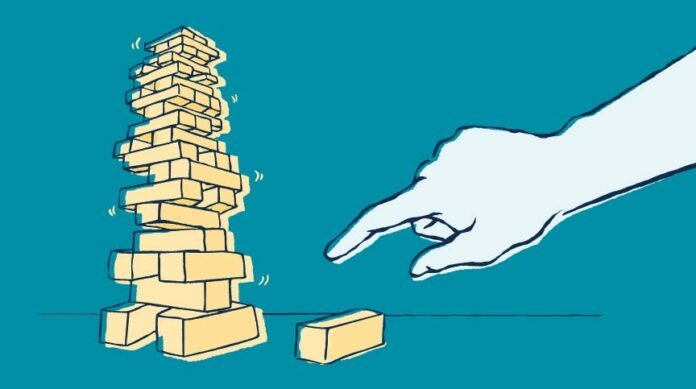Understanding the Polycrisis: A New Paradigm for Global Challenges
The term “polycrisis” has emerged as a defining concept of the 2020s, encapsulating the multitude of interconnected threats that humanity faces today. From climate change and pandemics to extreme inequality, democratic erosion, and armed conflict, the polycrisis represents a convergence of crises that challenges traditional approaches to problem-solving. As experts and policymakers grapple with this complex landscape, their responses often oscillate between dread and a sense of doom, reflecting a pervasive anxiety about the future.
The Limitations of Conventional Responses
In the face of such overwhelming challenges, the typical response has been to lament the myriad problems and create elaborate diagrams illustrating potential pathways to collapse. However, these discussions often culminate in vague conclusions that fail to offer concrete solutions. While there is a general consensus that systemic changes are necessary, elite institutions and donors frequently prioritize piecemeal solutions that address symptoms rather than root causes. For instance, the 2019 Nobel Prize in economics was awarded to economists who advocated for breaking down global poverty into smaller, manageable problems, promoting a micro-intervention approach that may overlook the broader systemic issues at play.
The Industrial-Colonial Paradigm
A significant barrier to effective discourse on the polycrisis is the failure to recognize the industrial-colonial paradigm that has contributed to our current crises. The World Economic Forum has identified the “Top Ten Risks” that keep global elites awake at night, framing these challenges within an industrial mindset focused on risk management and control. This perspective tends to emphasize potential future problems while neglecting the inherent uncertainty of complex systems, which requires a more adaptive and learning-oriented approach.
Moreover, the conventional wisdom surrounding the polycrisis is often steeped in elitism and Western-centric viewpoints. This narrow lens limits the imagination of potential solutions, disregarding the innovative responses emerging from non-elite actors and regions outside Europe and North America. For instance, China has emerged as a leader in renewable energy, while African firms are innovating under resource constraints. Indigenous activists are also demonstrating how to heal damaged ecosystems by embracing principles of reciprocity rather than extractive capitalism.
Rethinking Progress
The prevailing narrative of progress, rooted in the Industrial Revolution, often overlooks the darker aspects of this historical trajectory. While industrialization has undeniably improved living standards for billions, it has also fostered a legacy of domination—both over nature and among nations. The polycrisis serves as a stark reminder of the limitations of industrialization and colonialism, exposing the flaws in the mental models that underpin them.
The mechanical worldview promoted by industrialization treats complex natural and social systems as simple machines, leading to misguided attempts to control and predict outcomes. This reductionist thinking has had dire consequences, particularly in agriculture, where the push for uniformity and efficiency has resulted in ecological degradation and biodiversity loss. The climate crisis epitomizes the failure of this mechanical approach, illustrating that nature cannot be reduced to simplistic models.
The Colonial Legacy in Global Governance
The colonial mindset continues to influence global governance structures, which were established during a time of Western dominance. The assumption that Western capitalist democracies represent the pinnacle of human development has perpetuated a narrative that developing nations must “catch up” through assimilation. This has often manifested in one-size-fits-all governance reforms promoted by Western-led institutions, which have failed to account for the unique contexts and needs of diverse societies.
The consequences of this homogenizing approach are evident in the deep-rooted challenges faced by many developing countries. Scholars like Lant Pritchett and Michael Woolcock have highlighted how blindly mimicking Western organizational forms has contributed to systemic failures, reinforcing the need for context-specific solutions that draw on local knowledge and practices.
Embracing New Paradigms
To effectively address the polycrisis, we must embrace new paradigms that challenge the prevailing industrial-colonial mindset. One promising approach is the concept of an “adaptive political economy,” which recognizes that natural and social systems are complex and dynamic. This perspective encourages us to study how these systems function, particularly in the Global South, to derive insights that can inform more effective solutions.
An adaptive paradigm must also incorporate inclusivity and morality, moving away from the colonial logic of assimilation. The principle of “use what you have” underscores the importance of leveraging local resources and knowledge to address challenges. For example, farmers in Ethiopia have revived traditional conservation techniques to regenerate their land, demonstrating the power of localized, context-driven solutions.
Rethinking the Role of Government
In navigating the complexities of the twenty-first century, governments should adopt a role that transcends the binary of unfettered markets and command economies. Instead, they should focus on directing adaptive processes that coordinate and motivate a decentralized network of actors. This approach emphasizes experimentation, bottom-up feedback, and the discovery of successful outcomes without predetermining them.
The polycrisis may seem paralyzing to those clinging to outdated paradigms, but it also presents a unique opportunity—a “polytunity”—to rethink our understanding of development, the sources of solutions, and the role of the state. By embracing complexity, inclusivity, and adaptability, we can forge new pathways toward resilience and sustainability in an increasingly interconnected world.

